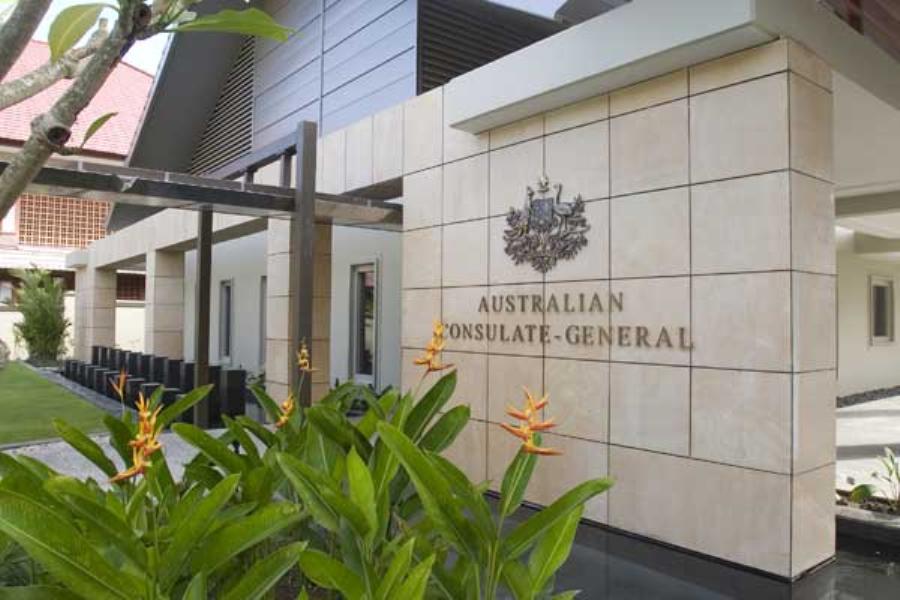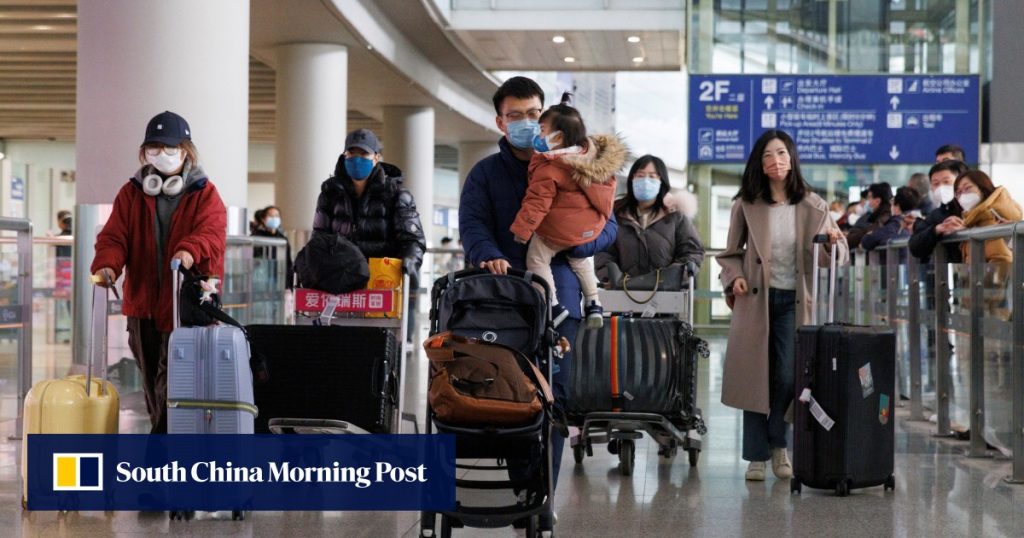

Visa Guides: The Frustration of Embassy or Consulate Visits and How to Prepare
Embassy and consulate visits can be deeply frustrating experiences for many individuals seeking visas. The complex procedures, bureaucratic hurdles, and lengthy wait times can be overwhelming. This guide aims to address the common frustrations associated with embassy or consulate visits, offering valuable insights and practical strategies to streamline the visa application process. This guide covers various aspects, from understanding the application procedures to organizing supporting documents, and from communicating effectively to preparing for interviews. We’ll provide practical tips and actionable steps to make your embassy/consulate visit a positive and efficient experience.
Understanding the Visa Application Process
Unveiling the intricacies of the application.
Visa applications, particularly those involving embassy or consulate visits, often present a labyrinth of regulations and procedures. Understanding the specific requirements is crucial for a smooth experience. Begin by thoroughly researching the specific visa type required, as requirements vary significantly based on nationality, intended destination, and purpose of travel. This understanding provides a solid foundation, helping you avoid costly mistakes and potential delays. Knowing the precise requirements will also save you time, as you can proactively obtain any needed documents. Many embassies and consulates provide comprehensive information on their websites about the specific application process, forms, required documents, and processing times. This often includes a list of frequently asked questions (FAQs), helping applicants clarify any ambiguities or doubts.
Navigating the application forms
Comprehending the intricacies of the application forms is critical. These forms often require precise information, and any errors can lead to rejection or delays. Pay close attention to all instructions and guidelines provided by the embassy or consulate to ensure accuracy. Carefully review and double-check all submitted information to minimize potential errors. Thorough proofreading and verification of accuracy can help avoid costly mistakes.
Essential Supporting Documents
One of the most frustrating aspects of the visa process can be the collection and organization of supporting documents. Each application requires specific documents to support your claims, such as travel itineraries, financial statements, and proof of accommodation. Failure to submit the necessary documents, or incorrect submissions can lead to delays and unnecessary stress. The embassy or consulate may request additional documents, if they find any missing information. Careful organization, combined with meticulous verification of their authenticity and relevance, is a significant part of a successful visa application.
Gathering Essential Documents
Document Checklist: Ensuring Completeness and Accuracy
A comprehensive checklist, ensuring all necessary documents are assembled before applying for the visa, is crucial. This list acts as a guide, helping you avoid missing critical pieces of documentation that could derail your application. This will not only save time but also minimize the risk of rejections due to incomplete documentation. The checklist should include all supporting documents, such as financial statements, travel itinerary, proof of accommodation, and supporting letters. It is highly recommended to create a dedicated document folder to organize your documents and keep them readily available.
Supporting Financial Statements: Demonstrating Stability
Financial statements, often an essential part of visa applications, showcase your financial stability. These statements demonstrate that you have the funds necessary to support your trip. The financial requirements vary according to the embassy or consulate’s specific guidelines. Proof of sufficient funds can be provided through bank statements, pay stubs, or letters of sponsorship, offering a clear demonstration of your financial capabilities.
Travel Itinerary and Accommodation Proof
To demonstrate your travel plans, you must organize a detailed travel itinerary outlining your intended travel dates, destinations, and transportation arrangements. The travel itinerary serves as concrete evidence of your planned travel. Having proof of accommodations is equally vital. It provides evidence of where you will be staying and aids in confirming the validity of your travel plans.
Mastering Communication Skills
Communicating Effectively with Embassy Staff
Effective communication is vital for a positive experience. Maintaining professionalism and politeness during interactions with embassy or consulate staff is crucial. When presenting questions or concerns, articulate them clearly and concisely. A respectful demeanor, combined with a proactive approach to resolving any ambiguities, will undoubtedly contribute to a more positive outcome. Taking the time to thoroughly read all provided information is key for a smooth experience. A clear understanding of the instructions will reduce the likelihood of misunderstandings or follow-up inquiries.
Navigating Potential Challenges
Visa applications can face unforeseen challenges, including issues with the submitted documentation, questions during interviews, or bureaucratic delays. Knowing how to address these issues effectively will greatly enhance your chance of success. Knowing how to properly respond to potential challenges shows preparedness. In the case of unforeseen circumstances or discrepancies, it is essential to communicate with the consulate or embassy representatives promptly and respectfully, and seek assistance to facilitate timely resolutions. Having a strategy to handle challenges will help mitigate any unexpected problems.
Preparing for Visa Interviews
Visa interviews, especially for more complex cases, require thorough preparation. Practicing interview questions and answering them confidently can instill confidence and provide valuable experience. This preparation is crucial to navigating the challenges in the interview room with poise. Understanding the visa officer’s perspective and being prepared to provide detailed answers will help you navigate the interview with professionalism.
Avoiding Common Mistakes
Identifying and Mitigating Potential Errors
Common mistakes often derail visa applications. Being aware of potential pitfalls, and knowing how to avoid them, greatly improves the chances of success. These common errors include incorrectly filling out application forms, submitting incomplete documentation, or providing inaccurate information. Avoiding these mistakes is crucial in order to streamline the visa application process, to reduce the chance of delays and unnecessary stress. Recognizing these areas of potential errors allows you to make corrections proactively.
Prioritizing Organization and Attention to Detail
In the visa application process, meticulous organization and attention to detail are paramount. A well-organized system for handling documents, notes, and communications plays a significant role in minimizing potential errors. Prioritizing the organization of documents minimizes the possibility of missing important information, and ensures that your application remains in compliance with all regulations. This proactive approach will reduce the chances of experiencing setbacks and delays in the application process.
Understanding Cultural Nuances
Cultural sensitivity and awareness are key in many international interactions. Different cultures may have distinct communication styles and expectations. Understanding cultural nuances can greatly contribute to smoother interactions and result in a more positive experience. This may include respecting local customs, dress codes, and etiquette during visits and interactions with embassy or consulate staff. Being well-versed in these cultural nuances is very important and demonstrates respect for cultural differences.
Utilizing Resources for Support
Expert Advice from Immigration Consultants
Seeking guidance from qualified immigration consultants is frequently beneficial. These experts are knowledgeable about visa application requirements and procedures, thus facilitating a smooth experience. They can help you complete your application accurately and understand the complex requirements and procedures, and can guide you through the intricate process.
Utilizing Online Resources
Several online resources provide helpful information about visa requirements and procedures, including detailed documentation, and FAQs. These resources offer valuable guidance, helping you stay informed about relevant changes in regulations and procedures, especially those related to the particular visa type you are applying for.
Engaging Support Communities
Engaging with online communities dedicated to visa applications can offer insightful perspectives and support. Sharing experiences, tips, and resources within these communities can provide you with support and encourage you to continue through the process.
Frequently Asked Questions
What are some common reasons for delays in visa processing?
Visa processing delays can stem from various factors, including incomplete or inaccurate applications, missing supporting documents, inconsistencies in the application information, or issues with the submitted supporting documentation. Embassies and consulates may also face backlogs, especially during peak seasons. Additionally, if there are discrepancies or concerns regarding the applicant’s background or intended activities, the processing time could be extended for further review. Understanding these common reasons can help you proactively address potential issues.
How can I expedite the visa application process?
Preparing meticulously and ensuring accuracy in your documents is key. A well-organized application with the required documents can help speed up the process. Maintaining clear and consistent communication with the embassy or consulate throughout the application process is also crucial for resolving queries swiftly and promptly. Following all instructions carefully and being punctual for scheduled appointments will further contribute to a smoother process.
What if I encounter a problem during my visa interview?
If you encounter a problem during your visa interview, remain calm and composed. Clearly articulate your concerns, explain the situation, and provide any supporting evidence that can help clarify the issue. If there is a misunderstanding or a discrepancy, calmly address it with a willingness to provide further information or documentation. Maintain a professional and respectful demeanor, which will help ensure the best possible outcome.
In conclusion, navigating the visa application process, especially the frustrating aspects of embassy or consulate visits, can be significantly eased with proper preparation. By understanding the application procedures, gathering all necessary documents, and practicing effective communication strategies, applicants can greatly improve their chances of a smooth and successful application experience. For those requiring further assistance or guidance, consider consulting with a qualified immigration consultant or seeking support from reputable online resources. This preparation will set you up for a successful outcome and will save you valuable time and frustration.